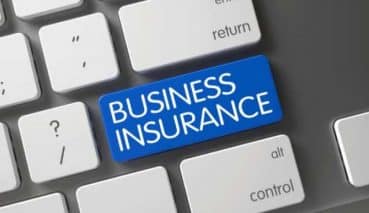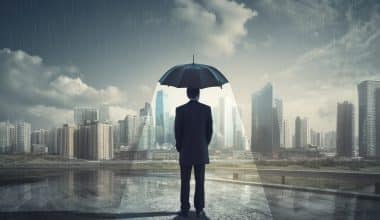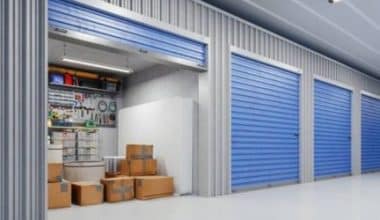The idea of insurance for businesses is to protect businesses from future losses. It is more like a cover or a shield for a business against unforeseen tragedy. In this article, we’ll be discussing the cost of business insurance, types, examples, and all you need to know.
Starting a business exposes an entrepreneur to various dangers from the start. A business is in danger even before the first person is employed, so it’s critical to have the correct insurance in place. A single lawsuit or tragic occurrence could be enough to put a small business out of business before it ever gets started. Having business insurance helps you to manage these risks. So, what is business insurance?
Business Insurance Definition
A business insurance cover protects companies against damages resulting from occurrences that may occur in the normal days of business. Companies assess their insurance needs on the basis of probable hazards, depending on the sort of environment in which the company operates.
Small business owners have a particular need to analyze and evaluate their insurance requirements carefully, since they may have more personal financial exposure in the case of a loss. If a business owner does not consider him or her to be able to evaluate business risk efficiently and to cover the need, he or she should engage with a trustworthy, knowledgeable, and licensed insurance broker. A list of licensed agents in your state can also be obtained via your state’s insurance agency or the National Insurance Commissioners’ Association. There are several business insurance types, including property damage coverage, legal liability, and employee-related hazards. These business insurance types could determine the your business will be needing.
Cost of Business Insurance
The cost of small business insurance varies greatly by policy and also different insurance companies. That may seem logical because a yoga teacher needs different coverage than a handyman, who has different needs than a daycare. Some professionals, such as personal trainers, can get small business insurance for as little as $15 per month, while general contractors with large projects and numerous staff can pay much more.
Even within a certain industry, most of these insurance companies adapt all plans to match your needs, and your small business insurance quote will reflect this. When you buy a policy, you will only pay for what you require and nothing more. However, until you go online and get your personalized small business insurance quotes, it’s practically hard to precisely forecast how much your coverage will cost.
While we can’t provide you with a “generic business insurance cost,” we can inform you about some of the aspects that go into determining the price of small business insurance.
What are factors that infulence your business insurance cost?
A number of thing determine the cost of your company insurance. Your occupation, the number of employees, and your insurance needs are usually the most relevant factors. These variables can differ dramatically from one company to the next.
These three elements are the fundamentals, and every small business owner should be aware of them. Of course, there are additional elements that can influence the cost of your business insurance, such as Property, Equipment, Location, Time spent in the workplace plus a lot more
When it comes to insuring your business, there’s a lot to think about, but getting help is simple. Simply make an effort to speak with someone who has experience insuring small businesses. You can also speak with insurance company personnel to know which policy will be best for you
Types of Business Insurance
There are many different types of insurance alternatives available to business owners. Insurance helps safeguard your organization against many hazards that could arise in routine operations.
Many business owners start their small business insurance needs with a Business Owner’s Policies (BOP). It combines three key coverage:
- General Liability Insurance
- Commercial Property Insurance
- Business Income Insurance
General Liability Insurance (GLI)
General liability insurance helps safeguard your company against allegations that it has caused:
- Body injury to another person
- Property harm to property of another person
- Personal hurts, such as dilemmas or defamation.
Commercial Property Insurance
Commercial property insurance supports the protection of your company-owned or rented buildings and equipment.
Please note that this insurance does not cover earthquakes or flood damages. You would probably need to receive a second coverage, such as a commercial flood insurance policy, to help protect your firm from such claims.
Business Income Insurance
If you cannot conduct your business due to covered property damages, your lost revenue might be replaced by business income insurance. You can therefore utilize this coverage to help pay ongoing expenses such as rent, charges for services, and payroll. This kind of insurance is also known as insurance for business interruption.
Professional Insurance Liability
Professional liability insurance helps cover the proceedings that the services you offered have committed an error. This kind of insurance is often known as E&O insurance.
Employee Compensation Insurance
Workers’ compensation insurance provides benefits to your employees if they are harmed or ill at work. The advantages can help:
- Pay for your medical expenses
- Replace most of your missed payments if you miss the job to recover
- Cover burial costs if they lose their lives because of injuries or disease at work
- Pay for continuous care, such as physical treatment
Most states require employees to carry compensation insurance for workers. If you don’t comply with the law of your state, you can face fines, penalties, and criminal prosecution.
Read Also: BUSINESS PROPERTY INSURANCE: Cost & Benefits Of Property Insurance
Data infringement Insurance
Data infringement insurance helps your company respond to the data infringement if personal information becomes lost or stolen. Some insurers may name this cyber insurance coverage.
Data infringement insurance can assist pay for:
- Notify affected persons
- Provide identity robbery services
- Create a campaign for public relations
Business umbrella insurance.
For some of your liability policies, business umbrella insurance enhances coverage limitations. So if your claim exceeds your policy limit, you can assist cover the difference with your umbrella insurance.
Business Car Insurance
Commercial car insurance helps safeguard you and your staff on the road when you use business vehicles. It can help cover property damage and claims for body injury due to an accident caused by your organization. This is significant since an insurance policy for personal cars will not help cover claims by third parties in an accident with a commercial vehicle.
Business Insurance Examples
We frequently consider commercial insurance claims to arise from catastrophic, exceptional circumstances, but insurance claims for small businesses are a routine component of doing business. These are the most common insurance examples for a business.
Burglary and robbery.
In addition to break-ins, burglary and theft accusations involve internal theft by staff. Actually, 42% of inventory losses in US stores are caused by robbery of employees.
What you can do: You may do this to prevent robbery by employees. Invest in a strong security system to prevent break-ins and consider constructing fencing around your building. Also make sure your company is properly equipped to discourage hunger thieves.
What coverage you need: collect commercial property coverage to start with. Then add an endorsement of crime and employees’ dishonesty/theft to your policy to guarantee that you get the protection you need.
Damage connected to water.
The damage to companies from water can be caused by snow, flooding, freezing conditions and pipelines bursting.
What you can do: prevent ice jams and damage to the roof by removing snow and ice from your roof. Make sure a person knows how to stop the water in case of a plumbing occurrence and keep the temperature in the building not less than 55 degrees Fahrenheit during the cold weather.
What protection do you need: Commercial property insurance often covers snow, freezing temperatures and bursting pipes, but not flooding damage. Business income insurance can reimburse you for loss of income if your company has to close down for reparation of water damage. The Federal Emergency Management Agency is also available to assist you learn more about flood insurance, including who needs it, what it covers and how to acquire it.
Damage to the wind and hail
If heavy winds and hail destroy commercial property, it can harm not just the company but the owner.
So here is what you can do: keep trees well maintained near you property; remove overhanging branches and quickly remove dead or dead trees. Outdoor anchor equipment which might be flown by strong winds in your house and safeguard windows if a major storm is foreseen.
What coverage do you need? As is the case with claims for water damages, the commercial property insurance will cover losses caused by wind and hail damages.
Damage to fire
According to the Insurance Information Institute, every 64 seconds a structural fire occurs. Structural fires not linked to wild fires caused property loss of $11.1 billion in recent years.
This is what you can do: Set up your company’s fire safety checklist. Inspect and keep fire extinguishers at your site and also train all staff to utilize them. Install a fire sprinkler or fire removal system (certain places in commercial buildings require this),as well as periodical cleaning and inspecting any electrical equipment that can cause a fire. Make and practice an emergency departure plan with your staff.
What coverage do you need: commercial property insurance can cover fire damage repairs, and business income insurance can compensate for lost income after the fire.
Customer falls and slips.
Slips and falls are a significant source of injury to small business clients.
What you should do; To prevent falling on your company by immediately clearing up spills to avoid slippery flooring. Fix or remove risks, such as loose areas, tiles or uneven flooring. Fixed or removed. Keep your room free of extraneous clutter, such as storage goods on the floor, unsecured electrical cords, etc. If your property is concerned about fraudulent claims, you can also consider adding cameras to reduce/prevent claims.
What protection do you need: The coverage of general liability shall cover most losses resulting from a customer accident in slip and fall.
Conculsion
In your day-to-day operations, businesses confront a variety of hazards. Because small firms face greater financial exposure in the case of a loss, they should carefully assess their risks and obtain the appropriate coverage. The various types of business insurance should guide you on the type of coverage you will be needing.
Frequently Asked Questions
What is a business insurance policy?
Business insurance protects companies from financial losses caused by occurrences that occur in the normal course of business. Property damage, legal liability, and employee-related hazards are all covered by various types of insurance for businesses.
How does business insurance work?
A contract between the insurance company and the firm is known as business insurance. In exchange for premium payments, the insurance company offers to provide financial protection in the case of a specific loss. When a loss occurs, the company will file a claim.
How much does business insurance cost?
The costs of SMI depend on the sector in which you operate, the size of your organization, the type of insurance, and other considerations. Most small companies spend $30 or less a month on general liability coverage, although their costs may vary.
Do I need business insurance for my LLC?
Alas, the LLC corporate form usually only protects personal property against lawsuits, and even then, it is restricted. While an LLC will protect your personal assets by separating them from your business, your company may still require its own insurance policy.






